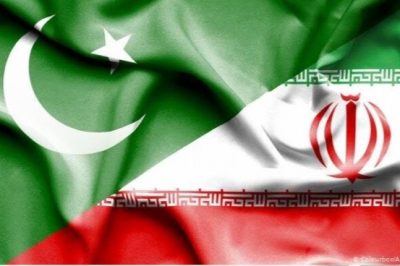Pakistan shares a border of 904 km in length with Iran to the west. After the Indo-Pak partition in 1947, Iran was the first Muslim country to recognize Pakistan as an independent state. A mix of cooperation and high tension at some points marks the relations between both neighbors. Pakistan and Iran have signed different economic, cultural, political, and defense treaties.
However, the Iranian revolution served as a turning point in Pak-Iran relations, which created ideological differences between the two since Pakistan had close ties with the US at that time; the second one was the neutrality of Pakistan during the Iraq-Iran war and the invasion of the USSR in Afghanistan.
While both countries condemned this intervention, Iran supported the non-Pashtun section, while Pakistan supported the Mujahidin and Pashtun sectors. Even after the withdrawal of the USSR, both parties had tense relations, which led to mistrust between these two countries.
Pakistan and Iran do not intend to breach each other’s sovereignty; however, the non-state actors are the bone of contention. Since 2013, Jaish-ul Adl has been involved in terrorist activities like insurgency, trafficking, kidnapping, and suicide bombing. In December 2023, the group took responsibility for the police station attack that happened in Rask (city of Iran), which killed 11 security officers.
On January 3, 2024 (the death anniversary of late Iranian Military Icon General Qasim Soleimani), two suicide bombers of Islamic State – Khorasan Province (ISKP) blast themselves in Kerman city resulting in the deaths of more than 90 civilians. The Iranian authorities declared that they would avenge these attacks.
On January 17, Iran carried out a missile strike in the Balochistan province of Pakistan. According to Iran’s state media, the strikes destroyed two bases of Jaish-ul Adl in the region of Panjgur and Turbat in revenge for a police station attack.
Iran claimed that it only targeted the militant sights and no Pakistani national was killed in these attacks. However, Pakistani authorities denied their claim by stating that two children were killed and three women were wounded in the attacks. The attacks were carried out on the same day when Pakistan’s caretaker Prime Minister Anwar ul Haq Kakar and Iran’s Foreign Minister Hossein Amir-Abdollahian met on the sideline of the World Economic Forum in Davos and while Pakistan and Iran held a joint navies exercise in the Persian Gulf.
Iranian authorities claimed that early warning was given to Pakistan that anti-Iran Baloch organizations were using Pakistani soil for their terrorist activities. Still, Pakistan did not act on intelligence information, so this action was taken out of necessity to protect Iranian soil.
Also Read: Techniques for coping in the time of Self Struggle
Islamabad, while condemning these attacks, considered it a violation of its airspace and declared that Iran had breached its sovereignty. Initially, Pakistan called back its Ambassador from Iran and did not allow the Iranian ambassador to enter Pakistan.
Later, the country launched a special operation named “Marg Bar Sarmachar” to retaliate against the Iranian attack. This operation was executed by the Pakistan Air Force, targeting different sites of BLA and BLF in the Sistan – Balochistan province of Iran. BLA and BLF are separatist groups involved in terrorist activities in Pakistan, and Iran is the safe haven for these terrorist groups.
Pakistan carried out these attacks based on credible intelligence and killed nine terrorists. Pakistan’s Foreign Office claimed that in the last few years, it provided intelligence information to Iranian authorities to take action against these terrorist groups. Still, Iran did not carry out any operations.
Tehran confirmed that nine people who were killed in the attacks were not Iranian nationals. Iran condemned these attacks and wanted an immediate explanation from Pakistan.
Pakistan’s former Permanent Representative to the United Nations, Maleeha Lodhi, said in a TV interview that this action on the part of Iran was shocking and mysterious and that too at a time when the war in Gaza is going on. She also said that Iran should refrain from such misadventures because Pakistan is a nuclear weapon state and has well-equipped forces, so if a war breaks out, the results will not be suitable for both sides.
According to John Kirby, the white house is observing the situation closely, and the US does not want to see any armed conflict in the region between Iran and Pakistan. The US blames Iran for irresponsible behavior in the region. On Thursday, Mao Ning, Chinese Spokesperson for the Foreign Office, told the media that China is ready to mediate between the two neighbors to avoid regional disturbances.
On Friday, after the strikes, a telephone conversation occurred between Pakistan’s Foreign Minister, Jalil Abbas Jillani, and Iranian Foreign Minister Hossein Amir-Abdollahian. Pakistan and Iran declared each other brother nations and respected their territorial integrity. Additionally, Islamabad and Tehran agreed that those strikes were carried out to target the terrorists and would prevent such misadventures in the future.
The sudden de-escalation and cooperation from both sides reveal that Pakistan and Iran have no desire to engage in full-scale conflict because both nations possess a well-equipped military power, and the results would be catastrophic for both countries. To avoid any crisis and significant conflicts in the future, both governments should take action against terrorist elements residing in their respective territories.
Author Muhammad Noman is a student of strategic and security studies at National Defense University, Islamabad.
** The opinions expressed in this article are solely those of the author and do not reflect the views or position of World Affairs Insider. The organization neither endorses nor takes responsibility for the content of this article and its accuracy.







